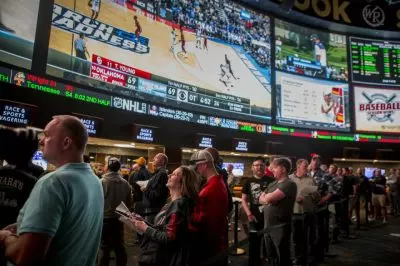 The competition for the Governor and Senate positions has not been the only Election Day’s ballot item that has been undergoing recount in Florida. The ballot question regarding the future of casino gambling in the state has also been subjected to a post-election re-examination.
The competition for the Governor and Senate positions has not been the only Election Day’s ballot item that has been undergoing recount in Florida. The ballot question regarding the future of casino gambling in the state has also been subjected to a post-election re-examination.
Amendment 3 was greenlighted with more than 70% of the vote – a considerably higher result than the 60% threshold which was necessary for the measure to be turned into law. Under it, local voters will be given the exclusive right to decide on the fate of further expansion of casino gambling in the Sunshine State.
As previously reported by CasinoGamesPro, Florida residents got the right to decide on future gambling expansion after Amendment 3 got 71.46% of the community’s approval. However, the situation seems not so glorious as far as sports betting is concerned. All in fine print on the Amendment 3 petition form, the definition of the phrase “casino gambling” used, does not include or even mention the phrase “sports betting”.
The Amendment 3 petition form gives a pretty clear and specific definition to “casino gambling” which, as mentioned above, does not include even a hint regarding sports betting. Apart from any types of games which are typically offered in casinos, casino gambling also includes the games within the definition of Class III gaming of the federal law set on Indian gaming – the Indian Gaming Regulatory Act (IGRA).
Also, according to the petition form, both parts of the definition are set to be assessed once the Amendment is adopted. The second part of the definition, however, is not relevant in this case, because sports betting is already classified as a Class III gaming under the regulations of IGRA. It is the first part of the definition which needs to be clarified.
Sports Betting Not Typically Found in US Casinos
 So, the state of Florida will have to see a more in-depth analysis on sports betting to make it clear whether it is a type of game which is typically found in casinos as of November 6th, 2018.
So, the state of Florida will have to see a more in-depth analysis on sports betting to make it clear whether it is a type of game which is typically found in casinos as of November 6th, 2018.
According to a recent report released by the trade association for the US casino sector, the American Gaming Association, casino gambling was legal in a total of 40 US states. Only six of these states – New Jersey, Nevada, Mississippi, Delaware, New Mexico and West Virginia – had casinos in which sports betting options were offered to players. Considering the fact that is only 15% of the 40 states where casino gambling is currently legal, sports betting does not seem to be a typical form of gambling to be found in a casino venue.
Things are not much different when it comes to tribal casinos and sports betting options. For the time being, the number of Native American casinos in the US surpasses 500, but only three of them feature sports betting as a gambling option for their patrons.
#Florida Amendment 3 passes 71%-29%, shifting authority to authorize casino expansion from the legislature to voters. It does not impact existing gambling at dog tracks or the Seminole casinos. pic.twitter.com/G62xbABg0j
— ActionNewsJax (@ActionNewsJax) November 7, 2018
With all the above being said, it is hard to say that sports betting could be taken as a common form of gambling which is offered in US casinos. If we also take into account the fact that no sports betting was mentioned in the ballot title, summery or even in the proposed amendment’s text, we can safely say that sports betting has not been part of Amendment 3, so Florida voters would not be able to make decisions regarding its fate in the state. It is also questionable whether local residents were provided with a “fair notice” about sports betting, but the result remains pretty much the same – state lawmakers will be the only ones with the right to make decisions on sports betting legalization without the voter consent.
Of course, it remains to be seen what happens next and to what extent will Florida lawmakers be able to legalize sports betting without putting the existing revenue-sharing agreements between the State of Florida and the Seminole Tribe in danger. The gaming compact of the parties dates back to 2010 and guarantee massive gambling revenue-sharing payments made to the state. In 2017 alone, these payments’ amount was estimated to over $290 million.